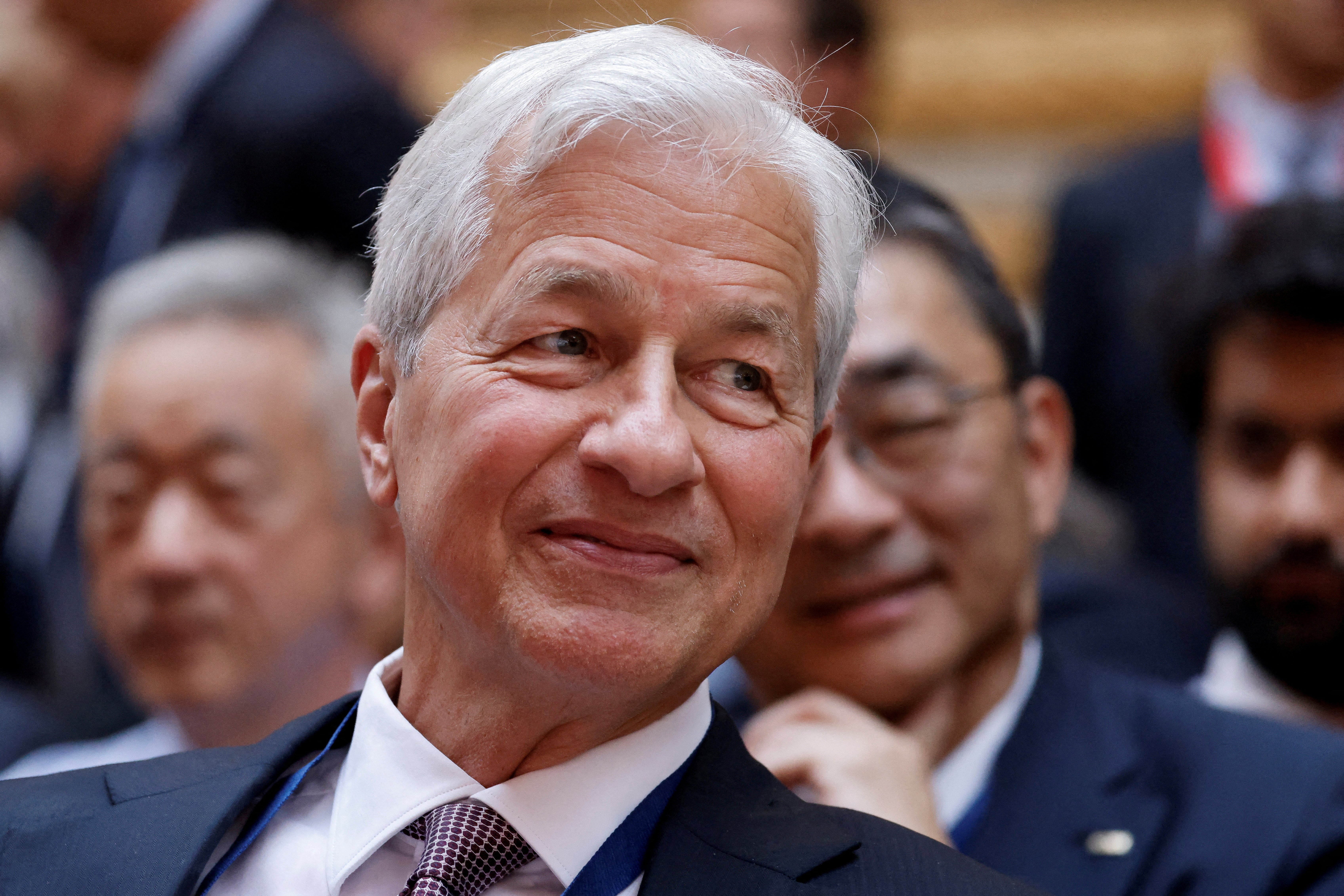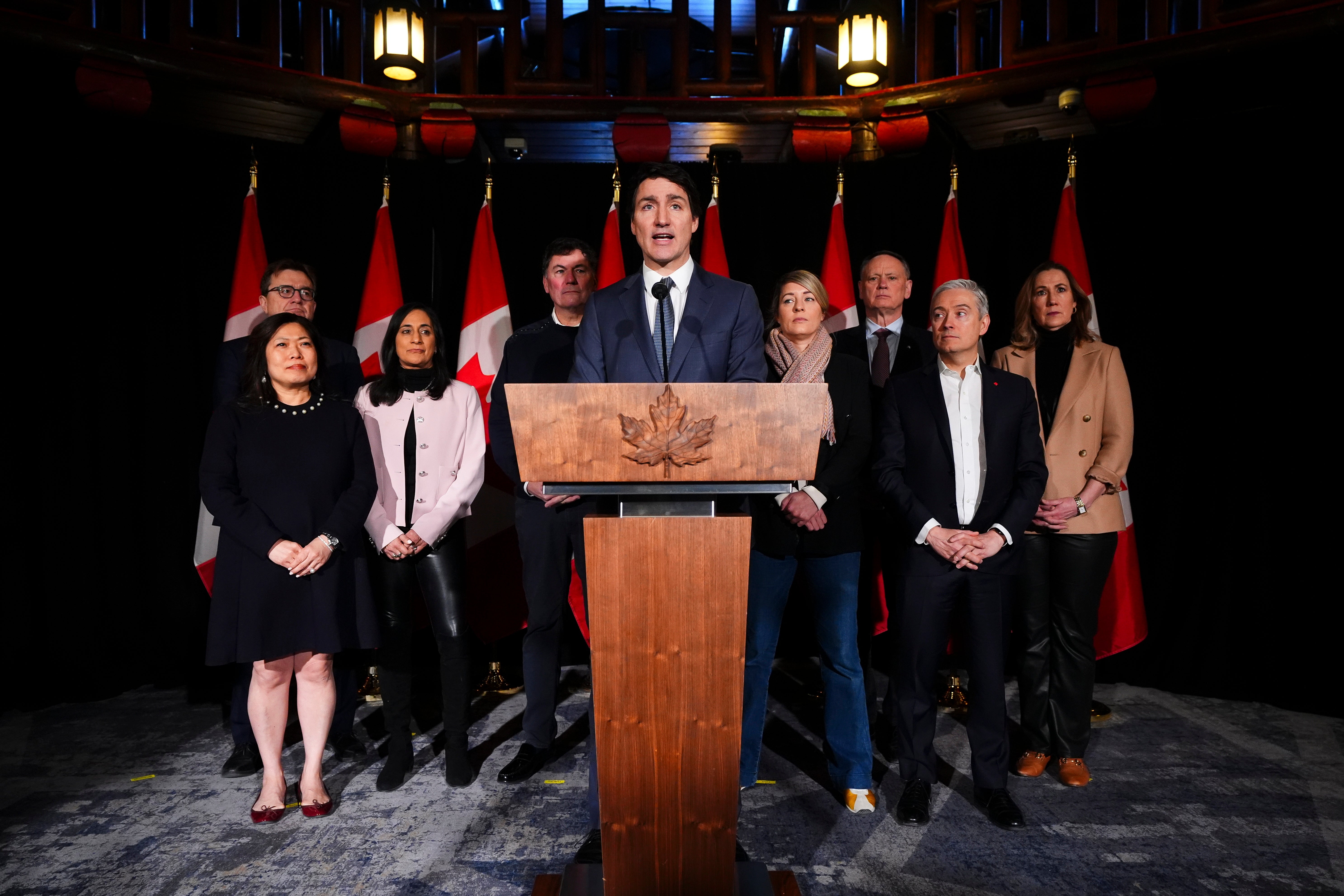Chase CEO Jamie Dimon tells people worried about tariffs and inflation to ‘get over it’
‘National security trumps a little bit more inflation,’ CEO said at World Economic Forum
Your support helps us to tell the story
From reproductive rights to climate change to Big Tech, The Independent is on the ground when the story is developing. Whether it's investigating the financials of Elon Musk's pro-Trump PAC or producing our latest documentary, 'The A Word', which shines a light on the American women fighting for reproductive rights, we know how important it is to parse out the facts from the messaging.
At such a critical moment in US history, we need reporters on the ground. Your donation allows us to keep sending journalists to speak to both sides of the story.
The Independent is trusted by Americans across the entire political spectrum. And unlike many other quality news outlets, we choose not to lock Americans out of our reporting and analysis with paywalls. We believe quality journalism should be available to everyone, paid for by those who can afford it.
Your support makes all the difference.During his first days in office, Donald Trump has threatened the U.S.’s top three trading partners China, Mexico, and China with major tariffs, but the CEO of a top Wall Street bank says people shouldn’t be worried.
“If it’s a little inflationary, but it’s good for national security, so be it. I mean, get over it,” JPMorgan Chase CEO Jamie Dimon told CNBC on Wednesday from the World Economic Forum in Switzerland. “National security trumps a little bit more inflation.”
“I look at tariffs, they’re an economic tool, That’s it,” Dimon, who was paid $36 million in 2023, added. “They’re an economic weapon, depending on how you use it, why you use it, stuff like that. Tariffs are inflationary and not inflationary.”
One of his fellow CEOs, Goldman Sachs boss David Solomon, had a similar take, telling the broadcaster, “Used appropriately, it can be constructive.”
This week, Trump has said a 10 percent tariff on Chinese goods and 25 percent border levies on Mexican and Canadian trade could all begin as soon as February 1st.
The president has framed the measures, which are actually scaled back compared to his campaign promises, as responses to the flow of undocumented migrants and fentanyl coming across U.S. borders.

All three countries have said they may respond with their own trade measures and urged Trump to adopt a different course.
The Chinese foreign ministry on Wednesday said it would defend its “national interests”.
“We have always believed that there are no winners in a trade war or a tariff war,” foreign ministry spokesperson Mao Ning said in a daily briefing when asked about Mr Trump’s threat.
“Our country is absolutely ready to respond to any one of these scenarios,” Canadian Finance Minister Dominic LeBlanc said on Monday. “We still continue to believe that it would be a mistake for the American government to proceed with imposing tariffs.”
Mexican President Claudia Sheinbaum struck a similar tone.
“Regarding the decrees that President Donald Trump signed yesterday, I would like to say the following: The people of Mexico can be sure that we will always defend our sovereignty and our independence,” she said in remarks on Tuesday.

“It’s always important to have a cool head,” she added, suggesting Mexico will respond “step by step” to U.S. tariffs.
As The Independent has reported, many mainstream economics believe Trump’s economic plans could raise inflation, despite a campaign that frequently criticized the Biden years for high prices.
In addition to the tariffs, Trump has pursued other muscular trade stances, including a reported desire to renegotiate the U.S.-Mexico-Canada trade agreement ahead of its 2026 review date, and threats to the BRICS block of emerging market nations to impose a 100 percent tariffs if they try to replace the U.S. dollar with their own currency.

Join our commenting forum
Join thought-provoking conversations, follow other Independent readers and see their replies
Comments